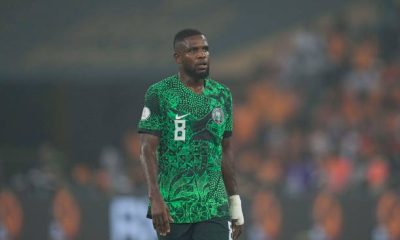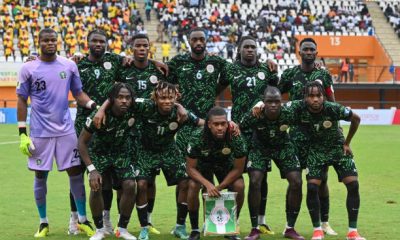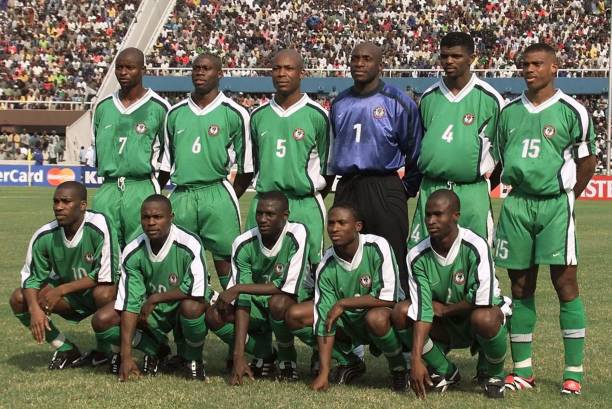
In the latest FIFA rankings released on April 3, 2025, Nigeria’s national football team, the Super Eagles, experienced a modest ascent, moving up one position to 43rd globally. Despite this slight improvement, the team has seen a decline in its continental standing, dropping to sixth place in Africa. This development prompts a deeper examination of the factors influencing Nigeria’s current position and the broader dynamics of African football. The Super Eagles’ rise is a testament to their consistency on the international stage, despite not always achieving stellar results in recent years. This article will explore the significance of Nigeria’s rise in the FIFA rankings, the challenges they face, and the factors contributing to their steady climb.
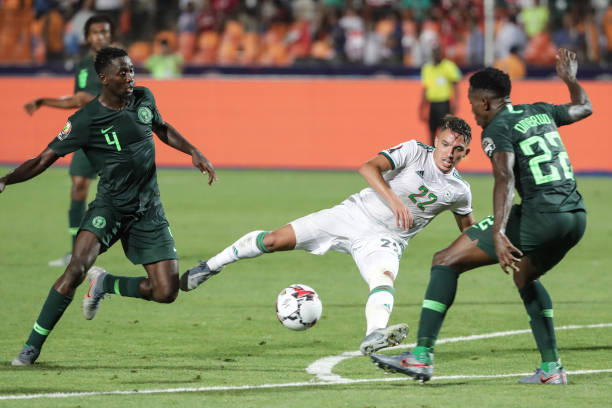
Nigeria’s Position in the FIFA Rankings
The FIFA rankings are updated periodically to reflect the performance of national teams based on their recent results, the importance of matches, and the strength of opponents. As of the April 2025 update, Nigeria’s Super Eagles moved from 44th to 43rd position globally. While this may seem like a minor improvement, it has important implications for the team’s status both on the continent and globally.
However, Nigeria’s performance in the African context tells a slightly different story. The Super Eagles have slipped from 5th to 6th place in the continental standings, now trailing the top five teams: Morocco, Senegal, Egypt, Algeria, and Côte d’Ivoire. This drop reflects the increasing competitiveness in African football, where nations like Senegal and Morocco have consistently performed well in major international tournaments, further solidifying their positions in the rankings.
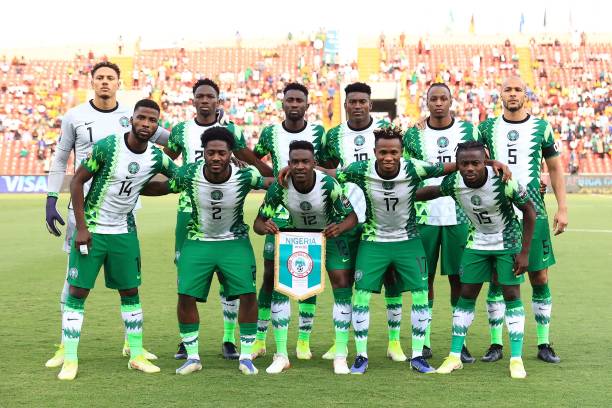
The Super Eagles’ Recent Performance
In order to understand how Nigeria’s recent form has impacted their ranking, it’s important to analyze their performances over the past year. While the Super Eagles have enjoyed some positive results, including a 2-0 away victory over Rwanda, their form has been far from perfect. In World Cup qualifying matches, they were held to a 1-1 draw by Zimbabwe and struggled against other mid-tier African teams. Their inconsistency has been a major factor in their inability to break into the top 20 globally.
Over their last 11 matches, the Super Eagles have recorded four wins, four draws, and three losses. Although the wins are significant, the draws and losses against lower-ranked teams have undermined their progress. Their struggle to secure consistent victories has prevented them from making major leaps in the FIFA rankings, especially in comparison to teams that have been more consistent in recent international competitions.
Factors Behind Nigeria’s FIFA Ranking Surge
While the Super Eagles’ recent performances might not have been perfect, several factors contribute to their rise in the FIFA rankings:
1. Historical Achievements
Nigeria’s football history plays a crucial role in its current ranking. Past victories, including their three Africa Cup of Nations (AFCON) titles (1980, 1994, and 2013), have helped the Super Eagles maintain a strong position in the FIFA rankings. Historical success has a lasting impact on a team’s ranking, and Nigeria’s past accomplishments continue to boost their profile despite recent inconsistencies.
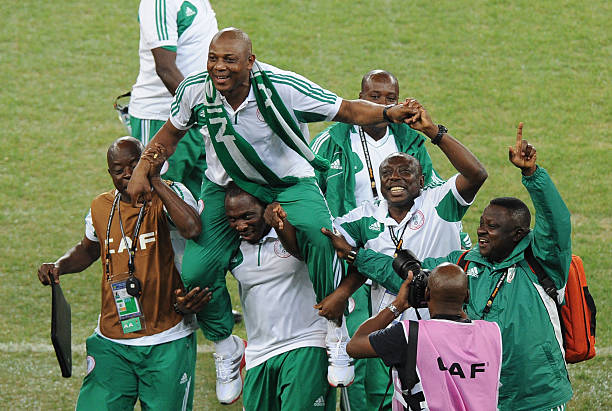
2. Consistent International Presence
Another significant factor is Nigeria’s consistent participation in international tournaments. Even when not performing at their peak, the Super Eagles’ regular qualification for major tournaments like the World Cup and AFCON helps to maintain their standing. For example, Nigeria’s regular appearances in the AFCON knockout stages ensure that they earn ranking points. Their continued participation in World Cup qualifiers and the recent AFCON tournament also helps to secure their place among Africa’s top teams.
3. Impact of High-Profile Matches
The Super Eagles often compete against some of the highest-ranked teams in the world, which impacts their ranking. Matches against higher-ranked nations, even if not resulting in a win, still help improve Nigeria’s standing in the rankings, especially if they manage a draw or a narrow loss. Fixtures against stronger opponents provide valuable ranking points, and Nigeria’s competitive matchups have kept them in the top 50 of the FIFA rankings.
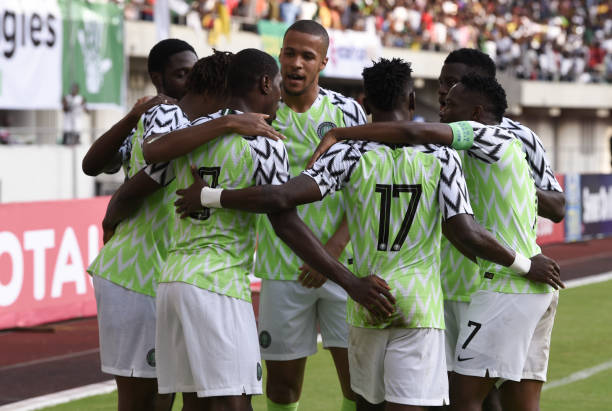
4. Strength of African Competitors
The Super Eagles’ rise is also influenced by the relative strength of African football. Nations like Senegal, Morocco, and Egypt have been performing exceptionally well in recent years, securing high positions in the rankings. While Nigeria remains one of Africa’s most prominent teams, they are competing with an increasingly strong field of African footballing nations, all of whom are striving for dominance.
The Impact of Ranking on Nigerian Football
While a 43rd-place in the FIFA rankings might not place Nigeria among the world’s elite footballing nations, it has significant implications for the Super Eagles:
1. Seeding in Tournaments
A higher FIFA rankings influences seeding in major international competitions like the World Cup and AFCON. Nigeria’s relatively high position ensures that they will be placed in a favorable group in tournaments, thus increasing their chances of progressing to the later stages. A drop in the rankings, however, could result in tougher draws, which could make qualification or progress in tournaments more challenging.
2. Player Recruitment and Morale
Rankings play a role in player morale and recruitment. Players want to be associated with successful teams, and the Super Eagles’ current standing helps maintain their reputation as a competitive force in world football. Additionally, a respectable FIFA ranking can attract more attention from scouts and clubs looking to sign top players from the Nigerian national team.

3. Sponsorship and Investment
Nigeria’s standing in the FIFA rankings can influence sponsorship deals and investment in football infrastructure. A higher ranking enhances the team’s appeal to sponsors, which is crucial for financial backing. This funding can then be directed towards better facilities, training programs, and player development initiatives, further improving Nigeria’s performance on the international stage.
Looking Ahead: Areas for Improvement
To rise further in the FIFA rankings, Nigeria must focus on addressing their recent inconsistencies. Key areas to focus on include:
- Squad Depth and Consistency: Ensuring that the Super Eagles have a consistent squad that can compete at the highest level across all competitions.
- Tactical Improvements: Implementing more effective strategies under the guidance of the national coach.
- Youth Development: Investing in youth football and developing future stars who can elevate Nigerian football in the years to come.
SUGGESTED FOR YOU
Nigerian Football History: 7 Incredible Milestones That Define Super Eagles’ Glory
Conclusion
While Nigeria’s rise to 43rd in the FIFA rankings is modest, it reflects the nation’s footballing pedigree and the resilience of the Super Eagles. Despite their recent form challenges, the Super Eagles remain one of the top teams in African football and have the potential to achieve even greater success on the global stage. By addressing the areas of improvement and focusing on long-term development, Nigeria can continue to solidify its position in the international football community.






